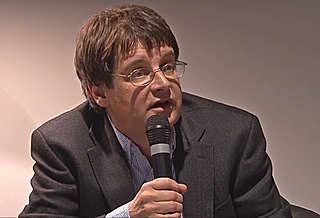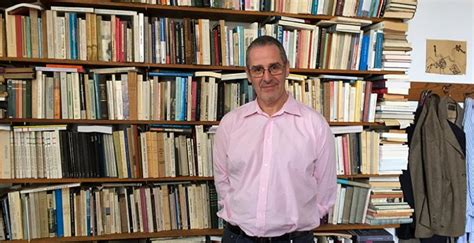A Quote by Tariq Ali
This is the permanent tension that lies at the heart of a capitalist democracy and is exacerbated in times of crisis. In order to ensure the survival of the richest, it is democracy that has to be heavily regulated rather than capitalism.
Related Quotes
It seems to rise again when the crisis times come, and this is a time of most severe crisis, as we all know, not just for the history of the United States and the survival indeed of our democracy, but for the future peace of the world. And never before probably has the need for interfaith commitment been nearly as great as it is at this very moment.
For me, it is clear that we are currently in a period of structural crisis of capitalism going back to the 1970s, but deepening in our time. Persistent economic stagnation together with neoliberal austerity has at this point seriously undermined the stability of the liberal-democratic state and thus the political command sector of the capitalist system. This has led to a dangerous resurgence of political movements in the fascist genus, representing an alternative way of managing the state of the capitalist system, opposed to liberal democracy.
In capitalist society we have a democracy that is curtailed, wretched, false, a democracy only for the rich, for the minority. The dictatorship of the proletariat, the period of transition to communism, will for the first time create democracy for the people, for the majority, along with the necessary suppression of the exploiters, of the minority.
Everyday I become more convinced, there is no doubt in my mind, and as many intellectuals have said, that it is necessary to transcend capitalism. But capitalism can't be transcended from with capitalism itself, but through socialism, true socialism, with equality and justice. I'm also convinced that it is possible to do it under democracy, but not in the type of democracy being imposed by Washington.
Democracy, in the United States rhetoric refers to a system of governance in which elite elements based in the business community control the state by virtue of their dominance of the private society, while the population observes quietly. So understood, democracy is a system of elite decision and public ratification, as in the United States itself. Correspondingly, popular involvement in the formation of public policy is considered a serious threat. It is not a step towards democracy; rather it constitutes a 'crisis of democracy' that must be overcome.
The genius of capitalism consists precisely in its lack of morality. Unless he is rich enough to hire his own choir, a capitalist is a fellow who, by definition, can ill afford to believe in anything other than the doctrine of the bottom line. Deprive a capitalist of his God-given right to lie and cheat and steal, and the poor sap stands a better than even chance of becoming one of the abominable wards of the state from whose grimy fingers the Reagan Administration hopes to snatch the ark of democracy.
Democracy suits Europeans today partly because it is associated with the triumph of capitalism and partly because it involves less commitment or intrusion into their lives than any of the alternatives. Europeans accept democracy because they no longer believe in politics. It is for this reason that we find both high levels of support for democracy in cross-national opinion polls and high rates of political apathy.




































